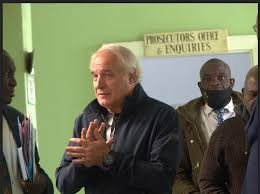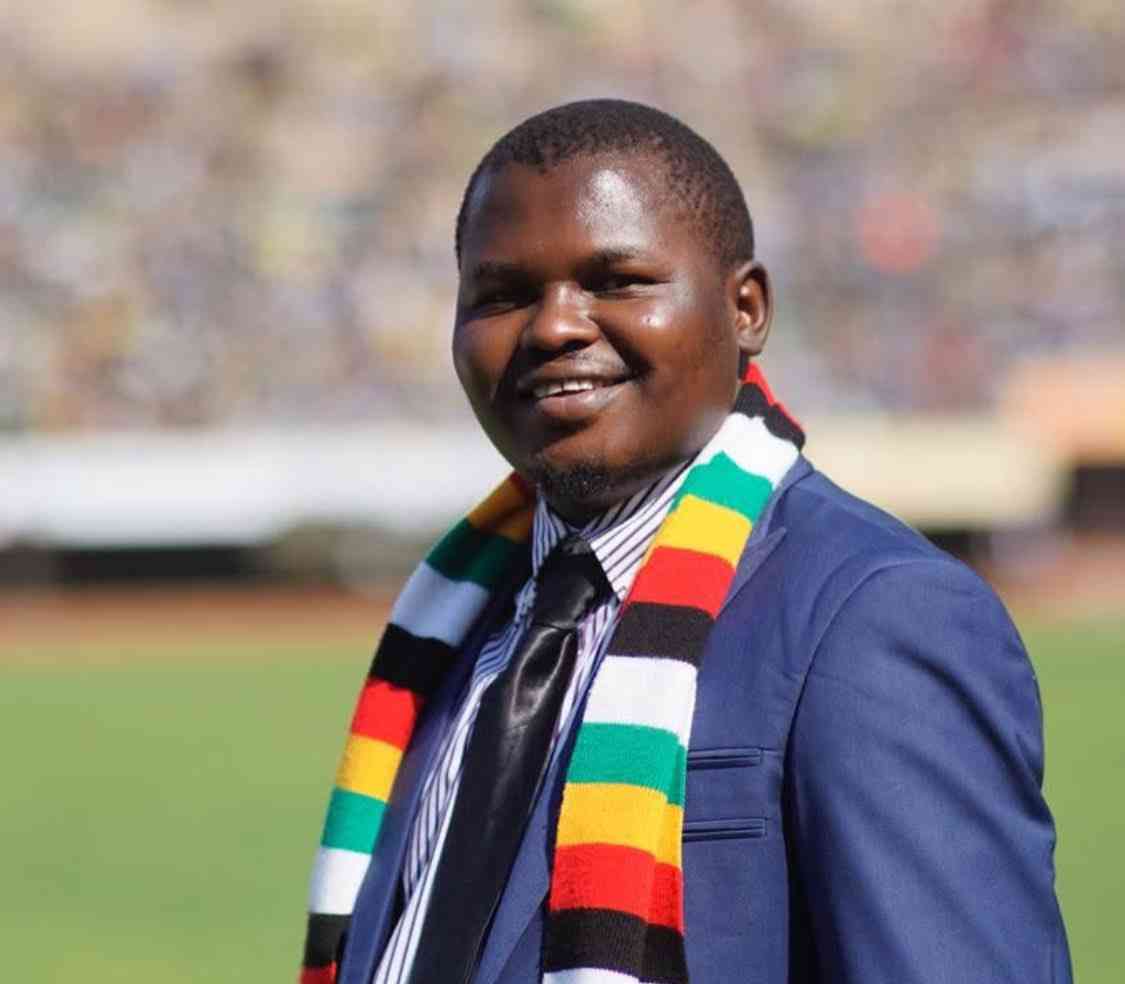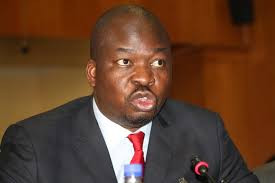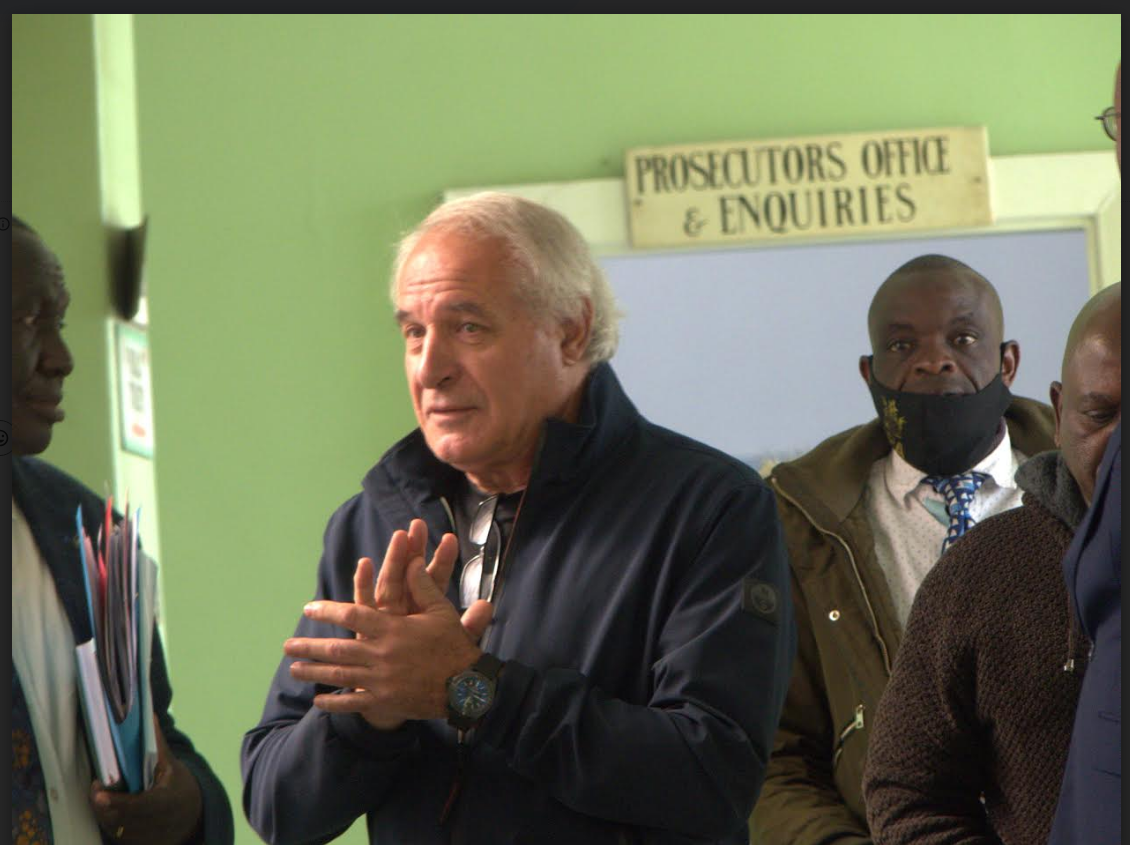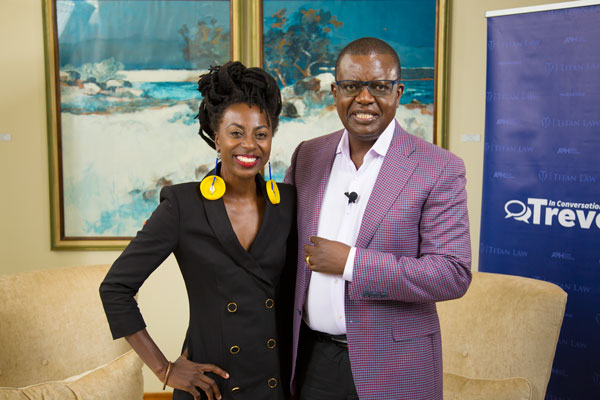
On her website, Hope Masike describes herself as a “sensational Zimbabwean singer-songwriter, mbira player, dancer, fine artist and advocate”. Masike (HM) is the latest prominent Zimbabwean to appear on the popular platform In Conversation with Trevor presented by Alpha Media Holdings chairman Trevor Ncube (TN), where she spoke about her “deep love for mbira” and her inspirational journey in the music industry. Below are excerpts from the interview.
TN: Ruvimbo Hope Masike, what an amazing song that was. Welcome to In Conversations With Trevor.
HM: Thank you, thank you for having me and I am so excited to be here.
TN: Tell me about the relationship that you have with that instrument.
HM: My relationship with mbira is deep and beautiful and we met some challenges here and there way back whilst I was still learning to play it.
But now we are cool and I love the mbira because when I started learning it, the first person to teach me asked me why I wanted to learn to play the instrument and I said to him ‘it’s because I want to make money’.
But I said that because I will be making money from something that actually represents me and the culture that was left for us by our forefathers.
So I love mbira because of that. The instrument itself represents our roots, represents our culture and represents who we are as Zimbabweans.
- Chamisa under fire over US$120K donation
- Mavhunga puts DeMbare into Chibuku quarterfinals
- Pension funds bet on Cabora Bassa oilfields
- Councils defy govt fire tender directive
Keep Reading
So no matter what you do with it, like now I just played the standard, I was actually reading from a book but because I’m playing it on mbira already I am surely representing Zimbabwe.
TN: How long have you been playing the mbira and how long did it take you to learn playing it?
HM: I would not really remember how long it took me to learn how to play it, but it was one of the instruments that I learnt the fastest, which might explain why we easily fell in love with each other.
I started playing mbira before finishing my Fine Art studies.
So on how I started knowing about the mbira, at home I grew up without any knowledge of the mbira.
My uncle was a pastor, so he was not the type that would play the mbira.
So when I finally went to the Harare Polytechnic to study Fine Art technique, within our subjects we would do a subject that covered the material cultures of Zimbabwe.
So through that subject we sometimes focused on mbira.
We did the history of mbira and from reading about it from the book, I liked it.
Incidentally one of my lecturer’s friends came to our class playing mbira every time.
So he would go through the corridors to our lecturer’s office playing the mbira and we started getting used to the sound.
So one day we asked him to teach us how to play it and he agreed and asked us to buy the instrument.
The next time he actually came with the mbiras and he taught us some few basics. So that was my first introduction to the mbira.
But when I finished studying Fine Art at the Harare Polytechnic, I went to the Zimbabwe College of Music and I started to learn music properly and the degree I did with the college started with a national certificate and a diploma that had a serious bias towards ethno musicology and also a biased view of the Zimbabwean music.
So that’s why we did a lot of Zimbabwean traditional music, and the different types of music that is njari, nyunga-nyunga, marimba, African drums, mbakumba, the mbira and all of that.
At the same time we learnt about keyboards, guitars, pianos — there was a serious bias towards those.
TN: Did you deliberately go for music? Did you choose to do it or you just stumbled on it? Some say they stumble into music and into several other careers, for you, how did it happen?
HM: The mbira is the one that called me. I chose to do music, but on the other hand I would say it kind of chose me. But when I was growing up in my family, everyone had a great voice.
I was not even the best voice at home. We would sing a lot.
Music had always been there and for me, in class, when we did any arts subject, I was always the best in the class.
So it was very evident that I was gifted with the artistic things.
I chose music as my professional career because it naturally fell into place.
TN: Definitely that was a deliberate choice. So let’s go back to where you were born and where did you do your formative education?
HM: I was born at Highfield Polyclinic, which was just close to our home. I grew up and spent most of my childhood there.
At some point we lived in Bulawayo at Khami Prison, but most of the time I would be in Highfield.
I attended my elementary school at Regina Mundi and went to Mbizi Primary School.
I did my secondary school at Danhiko and went to Mabelreign Girls High for my A’Level and went to Harare Polytechnic for fine arts and then went to the Zimbabwe College of Music for the music and then now I am at Alliance Française for French.
I’m also doing international studies in diplomacy at the Institute of Diplomacy.
TN: That’s good and we will get to that soon, but where did the influence come from? Is it your mom or your dad or did the home influence you?
HM: I think it was just a quiet common family set-up that in the evening you would sing and pray together.
I grew up attending church at AFM. So every evening we would sing hymns from the church’s hymn book and then we would pray and that was a daily routine and it was natural grooming for me.
We are a big family, so the singing would make great harmony.
My mom was in the church choir and she used to go with me every Tuesday evening. Beautiful voices, I remember them so much and I always live in the memories of a girl called Kudzai who had an amazing soprano.
So all of that grooming I guess, it might have been deliberate to say we are grooming a musician here. It was my initial grooming.
TN: Was it mom on her own or dad did not have any influence in as far as music is concerned?
HM: Just that singing at home.
TN: Anybody else who sings in the family.
HM: Unfortunately I am the only one who sings professionally, but when we meet we all sing together.
TN: So your mentor, you call him your other father, Ray Mawerera. He said you are a singer, a dancer, a graphic designer and that art in all its forms runs through your veins. What do you think you are?
HM: I am art through and through.
TM: Talk to me about that.
HM: My fine art studies, the first year what you will be doing is applied arts and designing, which is basically doing everything like graphic designing, painting, drawing, sculpting, history of art, and then you specialise later.
So because of that I can in fact do all of those things. I only fail to do so because of time.
So when it comes to graphic designing, for as long as I have time, I really like doing it myself, but like I said because of time sometimes I fail to do it and sometimes that urge to have something designed by someone else gets me.
But there are many artistic things that I can do because I was taught or just that I was born naturally talented. He (Mawerera) is pretty much accurate in his description of who I am. I am art.
TN: You have a number of accolades. You have been awarded a Nama award, the Kora award and there are quite a number of other awards that have come your way, but you have just started. What do these mean to you?
HM: Well, like what the word says, it’s an award. It’s a reward and it’s always great to receive them, especially receiving them from home, it means a lot. It’s like a stamp that shows that what you are doing is adding value to other people’s lives.
They are always wonderful to have every now and then although the last couple of years I have not really focused on them because the way I work is in seasons, so sometimes I am in the ploughing season.
TN: Talk to me about the seasons.
HM: I find it more fruitful to work in seasons, for instance, I have several books lined up to be released because I worked on them a long time ago and it’s the same with music.
There was a time when I paid a lot of money to someone’s studio on the basis that every first week of the month I would come and just experiment with so many songs just lined up.
So I was in that season of ploughing. Now we are in another season and then there will come a season of working on the reaping process.
So I like that structure of working in seasons. It just helps with focus.
TN: That’s a lot of discipline.
HM: Thank you.
TN: Where does the discipline come from?
HM: It’s daily work I tell you. Being disciplined is daily work.
For me, it did not come as naturally. I had to teach myself that and I still work on myself on that.
That’s the other reason I have mentors who are there to mould me and get me to be focused and disciplined, but I tell you it’s the daily work.
l “In Conversation With Trevor” is a weekly show broadcast on YouTube.com//InConversationWithTrevor. Please get your free YouTube subscription to this channel. The conversations are sponsored by Titan Law.

